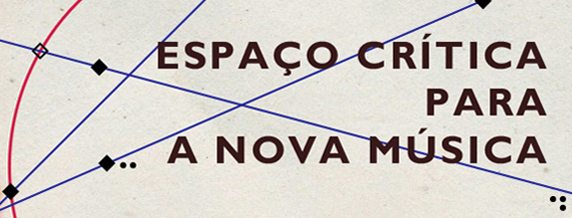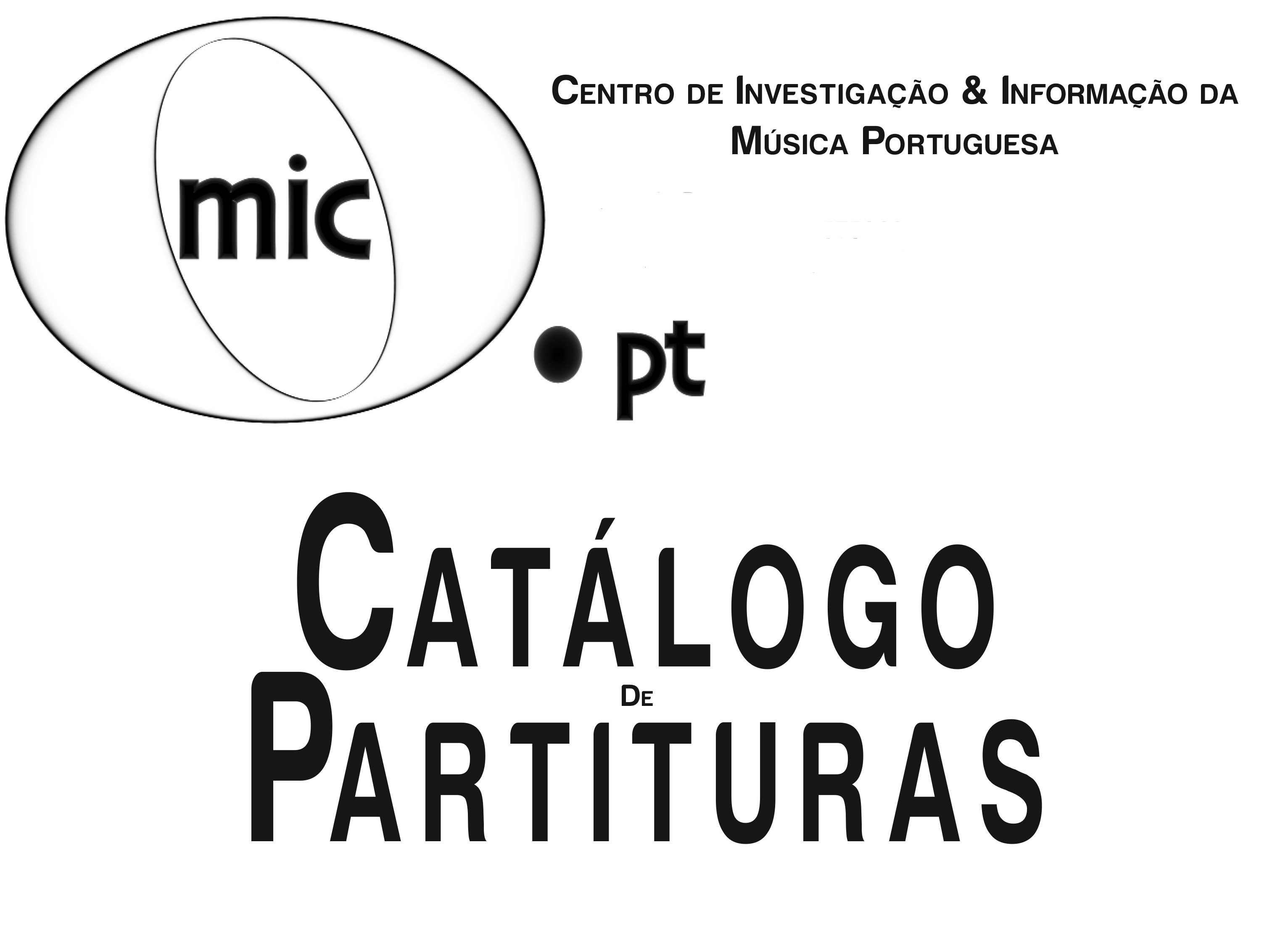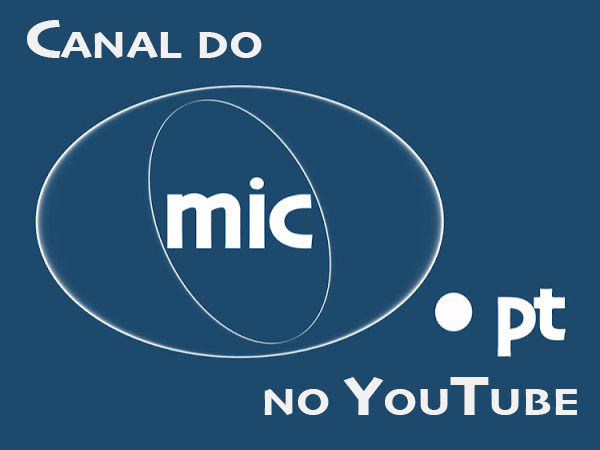Questionnaire / Interview
PART 1 - roots and education
How did music begin for you? Where do you identify your musical roots? Which paths led you to composition?
Accidentally, I had an instrument at home, a guitar... accidentally because nobody played it; it was there despite not being a decorative object. It was simply there, at home. One day I decided that I would play that instrument... that was there at home, and after the initial fascination of my discovery I ended up studying regularly the guitar and other general aspects about music, different types of music. From this autodidactic phase I particularly remember having studied Rameau’s treatise. It was after this stage when the idea began to materialize that indeed I had, or wanted, to study music.
Musical roots, I don’t know... I have some initial sound memories of Portuguese popular music, rural and urban... or of brass bands, of having heard this music somewhere at the beginning of my childhood, on markets or feasts or from someone... and then there was this guitar that was there at home.
I was interested in composition but I saw myself essentially as a performer, or student of an instrument. I studied the violin at the Academia de Amadores de Música de Lisboa with Garegine Aroutiounian, and at that time I got to know that there would be a concert with Luigi Nono’s violin music at the Calouste Gulbenkian Foundation. It was at the beginning or mid 1990s. I ended up attending almost every concert; that year the Gulbenkian Encounters for Contemporary Music were dedicated to Luigi Nono. It was after this event that, little by little, composition was gaining more and more importance for me, and was changing from something that only interested me to something that would occupy me.
Which moments from your music education you find the most important?
The approximately 8 years when I studied with Garegin Aroutiounian at the Academia de Amadores de Música de Lisboa, as well as the approximately 8 years when I visited Emmanuel Nunes at the composition seminars of the Gulbenkian Foundation in Lisbon.
PART 2 - influences and aesthetics
Which references do you assume in your compositional practice? Which works from the history of music and the present are most significant for you?
Perotin, Vivaldi, Satie, Varèse, Xenakis and Nono. To have a Homeric lineage, this one I would like to be mine.
The opposition between "occupation" and "vocation" ("inspiration") constitutes one of the aspects in defining the artistic approach of a composer. Where, on the scale between the emotive (inspiration and vocation) and the pragmatic (occupation), could you place your way of working and your stance as composer? Could you describe the process subjacent to your compositional practice?
As my occupation is what I decided to do, and my vocation is what I like and want to do, for me in the case of composition, vocation and occupation are absolutely simultaneous. I don’t understand it as a scale between one thing and another, but as desire and power. Neither do I think there is any type of relation of inverse proportion between the two things. They are rather a unitary complex, which manifests itself in the form of vital energy and reason, which are necessary for all things. Making reference to Fernando Pessoa: “God wants, man dreams, the work is born.”
To work, I occupy space and time, thinking, experimenting and imagining.
PART 3 - language and compositional practice
How could you characterize your musical language?
In response to this question I shall present some important aspects and problems in my way of working, which perhaps would help to characterise what my musical language can be.
Paper, pencil and rubber – these are the means, which I generally use when I work. Of course this implies previous experimentation and knowledge of the instruments and electronic means which I intend to employ, as well as all the years of studying and experience acquired as performer and composer. I am not saying that occasionally I don’t use other means, but essentially paper, pencil and rubber is what I need. I tried out other things when I started my composition studies, always ending up with paper, pencil and rubber. In a certain way we adapt to what we have, reducing the thought and imagination to what can be written on computer or played on the piano, for example. The objective of paper, pencil and rubber doesn’t have anything to do with an ascetic ideal of privation, rather the opposite – for me it means maximum freedom of spirit and action.
I don’t have any preferred intervals or chords, or any other type of sound, which I would consider better or more beautiful than the other ones. In itself and in isolation, everything is the same to me. These are sounds with determined characteristics and potential, but each one of them as an isolated object doesn’t represent anything, has neither value nor weight. Only when the relations are established between these diverse objects, they acquire life, life which requires my complete awareness and attention. Things are or exist not by themselves, but in the relations, in the form how they act and live. For example a set of notes, which form an object historically known as major perfect chord, is for me, initially, nothing else but a set of notes with determined characteristics and potential. It is when one begins to establish relations between this object and the other ones that it gains life and can assume the potential of perfect major chord... or not.
The discourse is for me the most important aspect; I can even say that for me everything is discourse. It’s the form how I occupy the space and time in music; it doesn’t have anything to do with the establishment of a narrative. Discourse is logos, the active reason, which animates everything; it is the vital energy. It is in the discourse and through the discourse that the relations are established and everything gains life, it is in the discourse that one encounters reason of all things, since it on its own constitutes reason – logos.
We can construct something during our whole life, little by little, as a result of a constancy and regularity. And this is important. Yet all this is almost always conditioned by singular events, which establish a before and after, irregularities with which everything is related whatsoever. Because of that, singularity is not a strange inconstancy to overcome, but the source of life. Singularity and irregularity are very important for me and it is through them that I look at all things.
Repetition as an extreme case of non-irregularity particularly interests me. Not so much the repetitive phenomena, whose objective is to produce a texture or tapestry and, for this reason, innumerable repetition, but the pure and simple repetition, enumerable, of a note, chord, of a whole block, etc. How many times shall I repeat? Two times? Twenty? Hundred... why? How...? Once again, everything constitutes discourse...
...even the silence – a sound extreme and therefore something, in which I became interested, and with which I have been working continuously. An easy and sophisticated thing to include in a work, but... I don’t have a single piece with silence; it has never been my objective. Silence is the nothing; it is the anticipation of the beginning and the immediate succession of the end, nothing at all... it is a non-existence. I have silences in almost all of my pieces, at least since a certain time, silences that sound and vibrate in the discourse, which are heard... which have duration, intensity, position and direction in space, timbre, pitch, etc. I have never imagined my silences as silence, as emptiness filled with nothing. They are rather complex objects within their simplicity and in the relations which they establish; they are silences with sound.
What is your relation with new technologies and how do they influence your way of composing, as well as you musical language?
The recent computer developments in music, from the last 20 years at least, with the so-called live electronics, reaffirm the importance of the performer. Music is not only what it desires to be, but also and mainly what it can be. Live electronics has introduced the possibility of extending instruments and the respective instrumental technique. This is for me the great recent event.
With the instruments well defined and almost immutable for so long, one created an idea of music as belonging to any unreal and abstract design, beyond this reality. Under diverse forms one used to live, and lives, in the world of desires... the reality was created outside music, in most cases in the form of a public, willing to pay a refined entertainment, in other cases in the form of a paper presenting to academic... or scientific environments... A kind of great neoromantic resurrection that took place in the 1990s under the aegis of the official politics of happiness – “I just want to be happy”, one used to proclaim then, and now, as a valid argument in any discussion, which has already gone far enough.
Live electronics came to abolish these foundations as it puts the reality inside music, materializing it in the instruments and performers; desire and power united in action.
The raising awareness of live electronics was not only the question of a technological, illusory and purely ornamental tackle; it was for me of greatest importance allowing me to continue my development as musician through the encounter and realization of things, which I was looking for since long, but which in a certain way were hidden from me. It allowed me to "see clearly seen the living fire."
PART IV - Portuguese music
What do you think of the current situation of Portuguese music? How could you define the composer’s role nowadays?
I am not sure if there is much to say about the situation of music in Portugal. There are certainly some interesting things, which are being done, and happening, people working, as well as positive and negative aspects like in another parts of the world. There are, however, old problems, which have never been solved, and which continue to exist and have always prevented a true implantation of a healthy musical life in our country. We can invoke the importance of the São Carlos National Theatre in the past, or the true improvement of education and the value of the new generations of musicians in Portugal, and many other cases. Yet one has never achieved in Portugal a musical life with the capacity to give a real and effective contribution to the society in which one acknowledges and inscribes, a real development and integration of its interveners.
This can only be resolved through a serious discussion on what we want for music in our country; we could even not want art music and declare its uselessness for our purposes and objectives, and if anyone had wanted to make it, it would have been his/her personal problem. Nevertheless it is necessary musicians discuss the situation, what they want, and that this discussion is drawn-out to the political and institutional power, at a national, local and political-party level; they should claim very clearly what they intend to, acting in accordance.
As the situation of composers differs in each historical period of human history, and due to the great changes at global scale, which have been established during the last twenty years, the composer of today lives in a new situation in the way he/she is related to the society and power. Nevertheless I think that independently of his/her situation, the composer’s role has always been the same. Inside the conditions, problems and demands of every period, the work of composer is to question, think, imagine and make music, and in this context act as a force for change in the surrounding world, taking other paths and other possibilities.
PART V - present and future
What are your present and future projects? Could you highlight one of your most recent works, present the context of its creation and also the particularities of the language and techniques used?
At the moment I am working with José Grossinho on a piece for live electronics. It is only for live electronics, as José is the instrumentalist; in other words the whole arrangement of electronics will be assembled, and there will be no instrument or sound emitting source if not the spatial system for musical execution on its own. This project is still in an initial state of studying and experimenting and there is a lot of work ahead. It is a project that is taking place at the moment and will be extended for the close future over the next year, at least.
One of my most recent pieces is “but I have many friends, and some of them are with me”, for the Sond’Ar-te Electric Ensemble and live electronics. This commission by the Sond’Ar-te Electric Ensemble was premiered last year in June. It is a piece, which came in a time when I wanted to break up, not in the sense of a cut, but to unveil as barely as possible, what I was thinking about music and what I wanted and desire to do... to break, breaking is always fundamental.
How do you see the future of art music?
Any kind of knowledge, through the forces it liberates, is a threat for all kinds of instituted power in a determined moment. The main objective of any power is to control and perpetuate itself, whereas the objective of any kind of knowledge is the one of continuous discovery and renovation.
Since art music is a kind of knowledge, the historical choice of power until the period between the two great world wars of the past century, was to maintain music, and the other forms of knowledge close to it and always when possible in the most absolute exclusivity, not only in the hope of controlling its living forces, but also to legitimise its power through the possession and exhibition of material and immaterial goods – an absolute and divine power.
Everything changes and today the power in Europe and in the great part of the world needs the common vote in order to be legitimate. Because of that, this type of contemporary power has much more interest in identifying itself, and being identified, with everything that is popular. In the case of music the attention of power passes from art music to popular music, or to certain types of popular music and circumstances in which they are realised. If for other types of knowledge, such as the scientific for example, the gains seem to compensate the risk of loosing control over the forces generated by this knowledge, in the case of art seems it doesn’t have this kind of comprehension from the authority, which is at work in the major part of the so called free-world. It is because of that that one experiences a pressure from diverse agents of actual society, for art music to be guided by the same rules as popular music. In other words, it should meet its validation as a product subject to laws of the market, of buying and selling by the masses, what implies its suicide passing from knowledge to entertainment. Although this pressure is not normally exercised in a clear and obvious form, one can observe it in the way public money is distributed accordingly to the achieved ticket sells, major or minor sale of presentations, among other industrial quantifiers. An exhaustive list would be immense. As alternative, the political power offers art the subjection to academic processes proper to other types of knowledge, scientific in particular, having as consequence a deflation of contents and dissipation of art’s whole potential. It is as if to ask a sentenced to death: “do you prefer to die on an electric chair or gibbet?” It is not therefore surprising that art music is practically confined to a museological existence, validated in the procession, in a funereal tone, of past glories.
In spite of seeming to claim that there is no future, I think there is. And it seems to me that knowledge, and art as a particular form of knowledge, has always been subject to different types of violence during the centuries. Therefore, in a certain way the novelty is only in the means with which one exercises this violence nowadays. In the meantime the world continues, “and yet it moves” it was said one day, for the despair of the heralds of the end of the world, or in the current version, of the end of history.
Bruno Gabirro, August 2013
© mic.pt
To listen
Bruno Gabirro - "Rebel (Caos)" (2007/08)
Royal Academy of Music Soloists | Clio Gold - conductor





